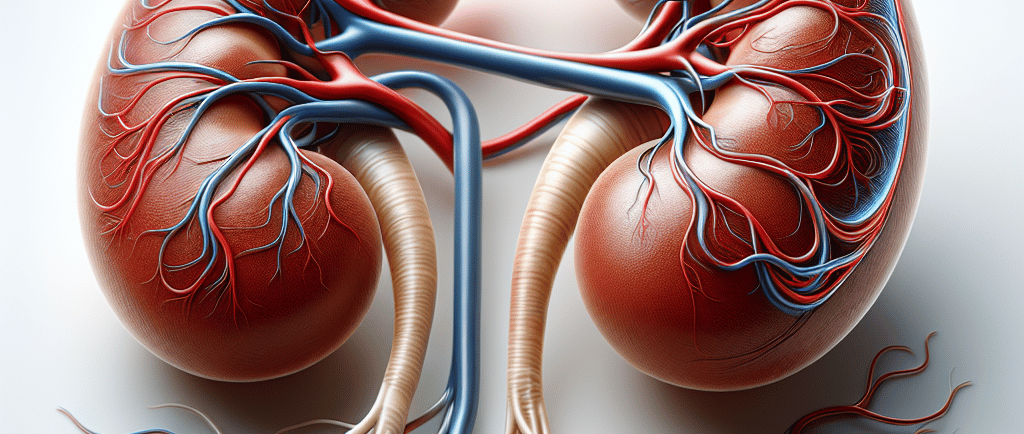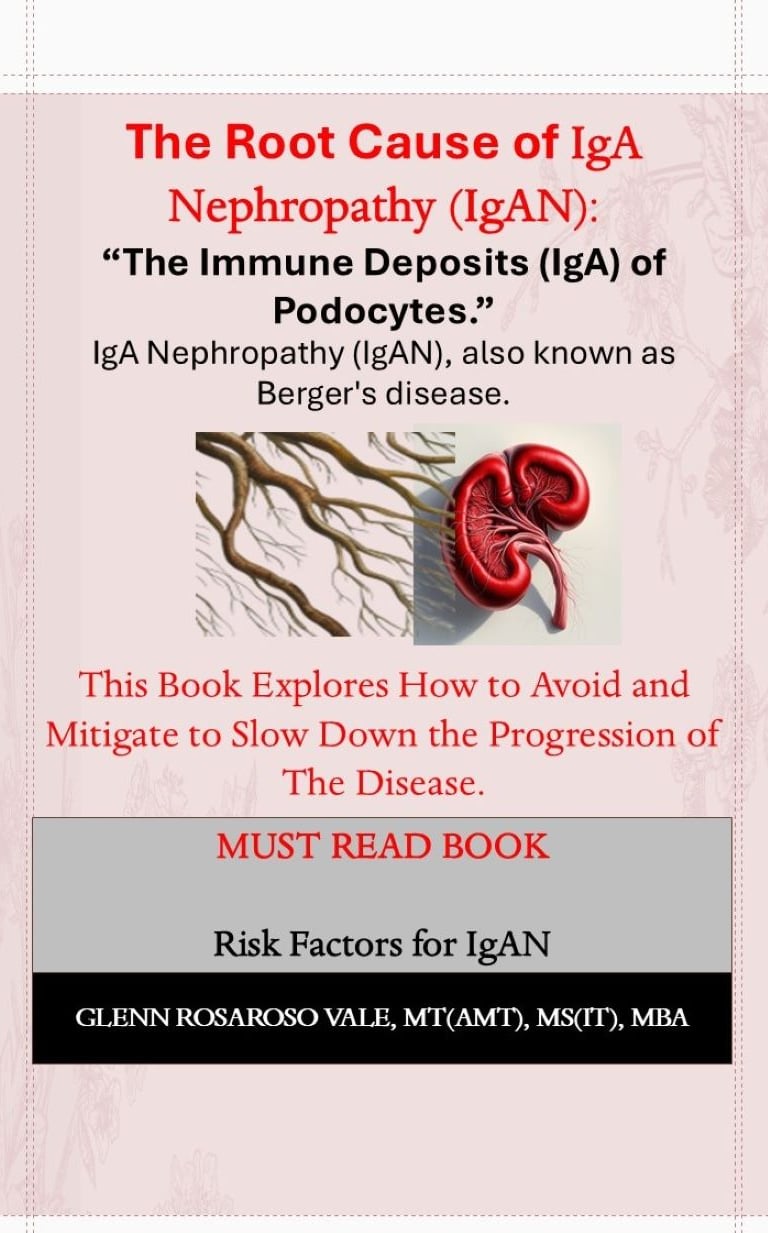"Uncover the truth behind the groundbreaking discovery of the causes of the world's biggest problems. 'The Root Causes' will change how you view the world!"
Preventing Kidney Disease: Essential Insights and Strategies
Understanding Kidney Disease Kidney disease is a serious medical condition that affects millions of people worldwide. It often goes undetected until it reaches an advanced stage, leading to complications such as kidney failure. The kidneys play a vital role in filtering waste and excess fluids from the blood, thereby maintaining overall health. Given the significance of these organs, it begs the question: can kidney disease be prevented? Risk Factors for Kidney Disease To effectively answer the question of prevention, it's crucial to understand the risk factors associated with kidney disease. Some of the primary contributors include high blood pressure, diabetes, smoking, and a family history of kidney issues. Individuals with these risk factors may be at higher risk of developing kidney disease, making awareness and proactive management essential. Furthermore, lifestyle choices such as poor diet and lack of exercise can exacerbate these conditions, further increasing the risk of kidney-related health problems.
DISEASES
Glenn Rosaroso Vale, BSMT, MS(IT), MBA
12/2/20244 min read


Understanding Kidney Disease: Prevention, Risk Factors, and Strategies for a Healthier Future
Kidney disease is a serious medical condition that affects millions of individuals worldwide. It often develops slowly and goes unnoticed until it reaches an advanced stage, where it can lead to complications such as kidney failure. The kidneys, essential organs responsible for filtering waste, excess fluids, and balancing electrolytes, play a vital role in maintaining overall health. Given their significance, it raises the important question: Can kidney disease be prevented?
Risk Factors for Kidney Disease
To effectively answer the question of prevention, it’s crucial to first understand the risk factors associated with kidney disease. Several conditions and lifestyle choices increase the likelihood of developing kidney problems, and being aware of these risks is essential for prevention and early intervention.
Some of the primary contributors to kidney disease include:
High Blood Pressure: Chronic hypertension can damage blood vessels in the kidneys, impairing their ability to filter waste properly. This increases the risk of kidney disease.
Diabetes: High blood sugar levels, common in diabetes, can damage blood vessels in the kidneys over time. This is a leading cause of kidney disease and may lead to diabetic nephropathy.
Family History: A family history of kidney disease puts individuals at a higher risk, as genetic factors may play a significant role in kidney health.
Lifestyle Choices: Poor diet, especially diets high in carbohydrates (more than 4 grams at a time), excessive use of seed oils rich in Omega-6 (linoleic acid), and a lack of physical activity, can exacerbate health conditions such as diabetes and hypertension, increasing the risk of kidney disease.
Smoking and Alcohol: Smoking impairs blood flow to the kidneys, and excessive alcohol consumption can elevate blood pressure and strain the kidneys, contributing to kidney disease.
Can Kidney Disease Be Prevented?
While kidney disease may not always be entirely preventable, there are several proactive steps individuals can take to significantly reduce the risk of developing kidney problems. By making healthier choices and addressing risk factors early on, it is possible to protect your kidney health and prevent or delay the onset of kidney disease.
Strategies for Prevention
Adopt a Healthy, Balanced Diet
A healthy diet plays a crucial role in preventing kidney disease. Focus on eating foods that promote kidney function and overall health. A balanced diet includes:
Low glycemic fruits and vegetables that don’t cause spikes in blood sugar levels.
Whole grains (limit intake to 4 grams per serving) to maintain balanced blood sugar levels.
Lean proteins like fish, chicken, or plant-based options that are low in saturated fat.
Limiting salt intake to avoid increased blood pressure and reduced kidney function.
Additionally, it is important to avoid processed foods, excessive sugars, and high-sodium foods that can strain the kidneys over time.
Regular Physical Activity
Exercise plays a critical role in maintaining overall health and reducing the risk of kidney disease. Regular physical activity helps control weight, improves blood circulation, and lowers blood pressure—three factors that are crucial for kidney health. Aim for at least 30 minutes of moderate exercise most days of the week. This could include walking, swimming, cycling, or any other activity that keeps your heart rate up and helps maintain a healthy weight.
Monitor and Manage Blood Pressure and Blood Sugar
High blood pressure and uncontrolled diabetes are two of the leading causes of kidney disease. If you have hypertension or diabetes, it's essential to manage these conditions effectively through:
Regular monitoring of blood pressure and blood sugar levels.
Following prescribed medications and treatment plans.
Making lifestyle changes such as weight management and reducing stress.
By keeping blood pressure and blood sugar within healthy ranges, you can significantly reduce the strain on your kidneys and prevent long-term damage.
Avoid Smoking and Limit Alcohol Consumption
Tobacco and excessive alcohol use are harmful to kidney health. Smoking impairs blood circulation and decreases kidney function, while excessive alcohol intake can increase blood pressure and lead to kidney damage. Quitting smoking and drinking alcohol in moderation—or eliminating it altogether—can help protect your kidneys and other vital organs.
Stay Hydrated
Drinking enough water is essential for kidney health. The kidneys rely on adequate hydration to flush out waste and maintain fluid balance. Aim to drink at least eight glasses (64 ounces) of water a day, though individual needs may vary based on activity levels and climate. Proper hydration helps the kidneys function at their best and prevents the formation of kidney stones and urinary tract infections, which can damage the kidneys over time.
Regular Check-ups and Kidney Function Monitoring
Regular check-ups are essential for early detection and prevention of kidney disease. If you have risk factors such as diabetes, high blood pressure, or a family history of kidney disease, it’s important to have your kidney function tested regularly. Blood and urine tests can detect early signs of kidney damage, allowing for prompt intervention and preventing further deterioration.
Conclusion: Protecting Your Kidneys for a Healthier Future
While kidney disease may not always be fully preventable, significant steps can be taken to reduce the risk and promote long-term kidney health. Understanding the risk factors, making informed lifestyle choices, and taking proactive measures such as managing blood pressure and blood sugar levels, staying hydrated, and exercising regularly can make a substantial difference in kidney function.
The earlier you take action and adopt healthier habits, the better the chances of preventing kidney disease. Remember, your kidneys are vital to your overall health and well-being, so it’s important to give them the attention and care they deserve. By making informed choices today, you can lead a healthier tomorrow, with your kidneys functioning optimally for years to come.
Health
Understanding illness to empower your well-being journey.
Wellness
Knowledge
info@rootcauseprevention.com
903-268-6664
© 2024. All rights reserved.
grfv@sbcgloal.net



